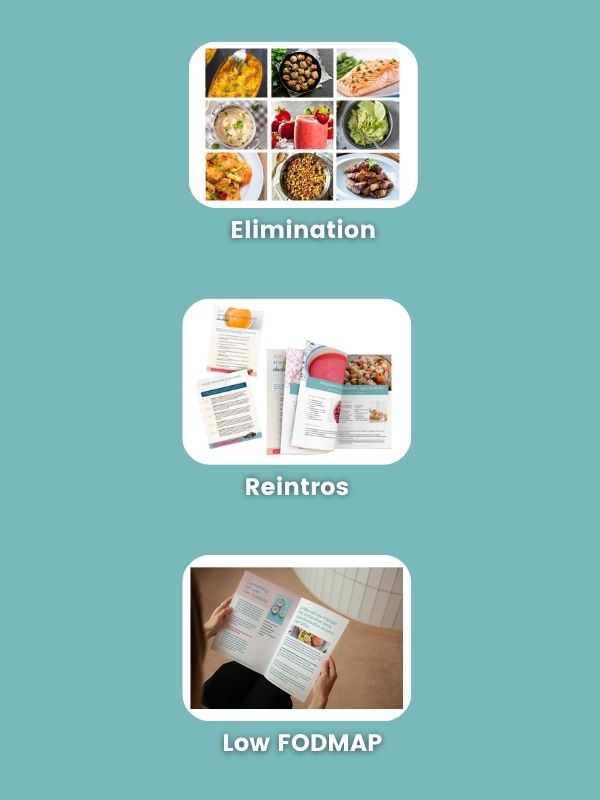AIP Herbs that Help Reduce Inflammation
Inflammation can be both a trigger and a symptom of autoimmune disease. Though, there is a common misconception that inflammation is something only people with muscle and joint injuries face. The truth is that you can have minor inflammation and resulting pain from changing your workout routine, from being sick with a bad cold or flu, as well as due to autoimmunity.
You may be wondering what you can do for inflammation that is natural and effective while also maintaining compliance with the Paleo Autoimmune Protocol (aka the AIP). In this post, I cover 3 anti-inflammatory herbs that can help you, as well as how to easily prepare them for use!


Turmeric

Turmeric is an herb that is readily available in powder forms at most grocery stores in the spice aisle. You may have already used this herb to bring a zesty flavor to your cooking. It can also help reduce inflammation caused by autoimmunity, fibromyalgia, overexertion, and joint or muscle issues.

The easiest way to use ground turmeric is to simmer it on the stove top in a small pot with equal parts filtered water until a paste is formed. Once the paste is formed, you can use a quarter of a teaspoon mixed with a cup of warmed coconut milk or tigernut milk. This is often referred to as golden milk or golden tea, and tastes even more delicious if you add a teaspoon of honey and a dash of cinnamon on top.
If you find the taste of the paste is still too bitter for you even in the golden milk, consider taking the herb in capsule form after speaking to your trusted physician about whether it is right for you.
Cloves

Cloves are commonly used in either the form of essential oil, whole, or ground. It is used to reduce inflammation both topically and orally, and has been recognized to provide relief from chronic arthritis. *source*
For an invigorating, delicious tea that can help to reduce your autoimmune-related inflammation, try this simple recipe:
Clove Tea


- 1 tbsp whole or 1 tsp ground cloves
- 1 cup filtered water
- 1 tsp honey (optional)
- orange slices (optional)
- Add water and cloves to a small pot over medium high heat. Bring to a simmer, then reduce heat to keep at a simmer for 3-5 minutes.
- Strain into your favorite mug. Add 1 tsp honey and orange slices if desired.
- Enjoy your clove tea in the morning for best results, being careful not to exceed 1 cup per day. Please only try this tea after speaking to your trusted physician about whether it is right for you.
Clove Essential Oil

Clove oil can even be used to help with inflammation in the gums or around sore teeth. The oil must be reapplied every few hours, but it can greatly reduce the pain caused by swelling and can even help disinfect the area.
Essential oils in general have the possibility of burning or causing irritation when used at full strength. Do keep a bottle of carrier oil on hand to dilute the essential oil for safety. My favorite carrier oils are olive oil, avocado oil, or MCT oil. These all help to deliver the essential oil without the burn.
It’s also important to note for the sake of keeping compliant with the Autoimmune Protocol that essential oils are not to be consumed internally, as this is not considered an AIP compliant practice.
Ginger


Leaky gut and imparied digestion can cause inflammation throughout your throat, stomach lining, and even your intestines. This can be a bit much for most over the counter medications to soothe. In fact, most OTC medicines cover only one or some but not all of those areas, and some may even have adverse side effects.
Ginger can help with all of those areas when used in fresh, ground powder, or capsule forms. To use fresh ginger root in a tea, cut and peel 3 inches of ginger for a full gallon of tea. Or for a small cup of tea, use just a ½” sliver.
Steep the ginger root in hot water for four to five minutes. Take out the ginger root and cool for 5 minutes, then add honey and lemon if desired.

Ginger can help settle your stomach, calm nausea, and reduce inflammation as it moves through your system. If you speak to your doctor about whether or not you need higher doses of ginger, they can help you decide if ginger root tablets or capsules are safe for you.
Here is a delicious AIP Ginger Dressing recipe that you can enjoy drizzled on salads, veggies, chicken, or fish!
Do you regularly use any AIP Herbs that Help Reduce Inflammation?
These are the three most common AIP herbs that can help with inflammation. They are also the easiest to obtain, use, and store. For these reasons, consider with your physician if they should be part of your natural and anti-inflammatory remedy arsenal!
I’d love to hear if you’re already using herbs for your inflammation and how your choice of herbs help you! Leave me a comment below.


















Thank you for all this information and ideas for use of these herbs. Can you explain this statement? “It’s also important to note for the sake of keeping compliant with the Autoimmune Protocol that essential oils are not to be consumed internally, as this is not considered an AIP compliant practice.” I don’t understand why they are not compliant.
Hi there Tonya,
I’m glad you enjoyed the information! Sorry that the statement about the ingestion of EOs is a little confusing. It’s actually been a debatable topic in the AIP community for a while now, but here are some links by experts about why we may or may not want to eat them on the AIP:
https://www.thepaleomom.com/paleo-podcast-essential-oils/
https://autoimmunewellness.com/whats-in-whats-out-on-aip-answers-to-tricky-foods/
https://asquirrelinthekitchen.com/autoimmune-disease-essential-oils/
I hope this helps you!
xo,
Meagen